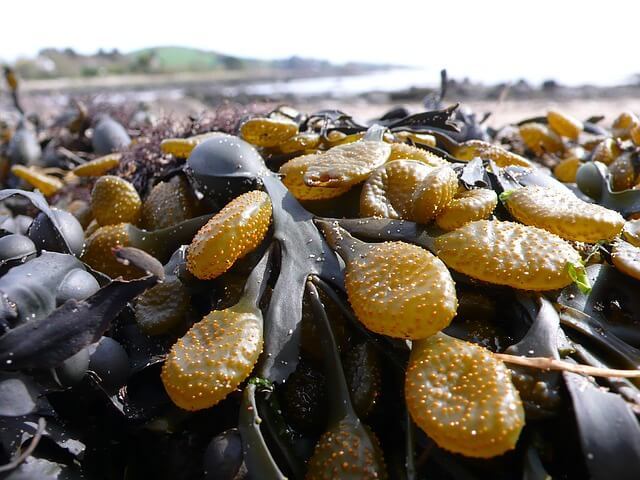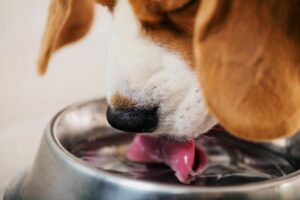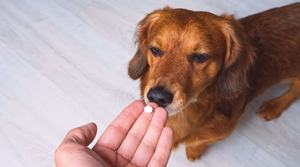A dog typically explores its surroundings for interesting things and will often sniff much of what comes its way. Dogs seem to be ever-hungry, and anything within range that smells good isn’t always safe to eat.
Your dog may love to play with seaweed at the beach and may even be tempted to snack on it. These sea vegetables are packed with nutrients, but can dogs eat seaweed?
Here is everything you need to know about dogs and algae and whether it is safe to make some for your dog.
Take Note
If your dog has eaten seaweed and he is acting abnormally or suffering allergy-like symptoms, be sure to consult with your veterinarian.
What is seaweed?
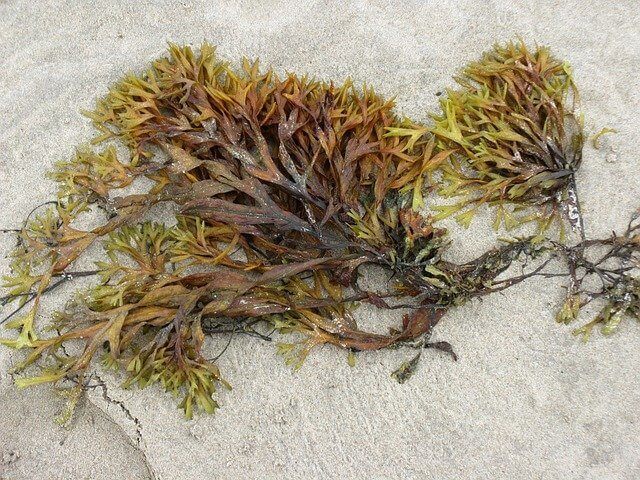
Seaweed is an all-encompassing term for the over 10,000 species of marine plants and algae that grow in water bodies like oceans, rivers, and lakes.
Their sizes range from microscopic organisms suspended in water columns, to those that grow in “forests” and tower like redwoods up to 300 feet with their roots at the bottom of the sea.
Some seaweeds, like nori and kelp, are nutritionally beneficial, while others, like sea oak and mayweed, have medicinal uses. A variety of seaweeds are also used in many products like toothpastes, frozen food, dairy products and much more.
Is seaweed bad for dogs?
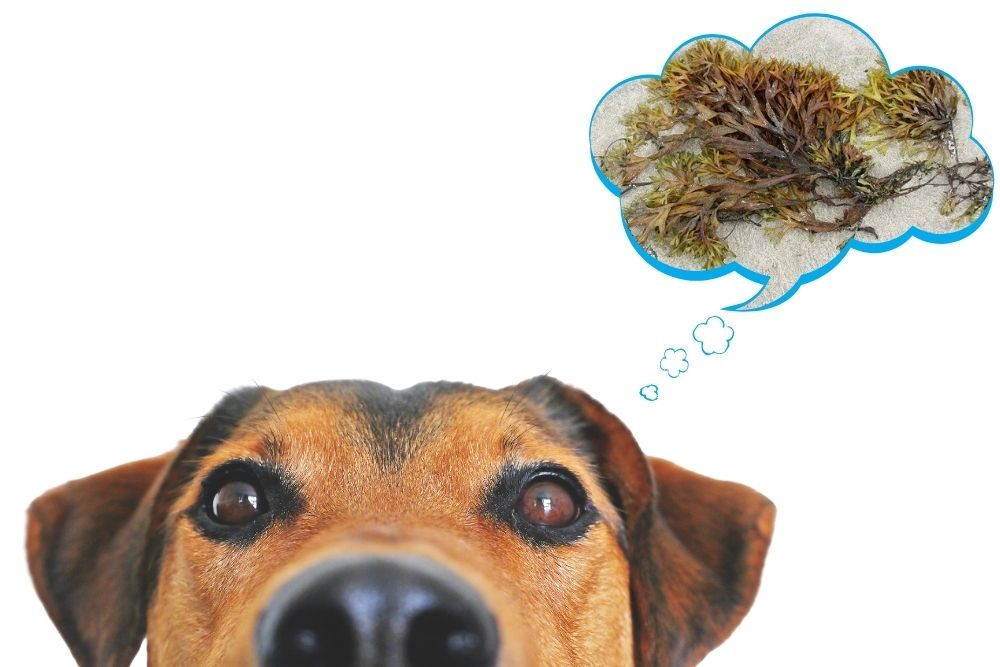
Munching on a pile of seaweed is toxic to dogs. A dog can end up seriously ill and require emergency treatment.
While some seaweed is hailed for their high nutrient contents, dried up seaweed washed ashore contains dangerous toxins that can be fatal for dogs.
Apart from their ability to shrink and expand, seaweed that piles up on beach begins to rot over time. Within a very short time, it becomes sulfurous, attracting insects and encourages bacteria growth.
It appears that the damage from seaweed isn't as much from its chemical contents as from its tendency to expand in the stomach and become stuck in the intestine. That's what makes even edible seaweeds like sea oak dangerous.
A record number of dogs are dying in the hot summer weather due to dried-up seaweed. As the green veggies are ingested and comes in contact with liquid, it rapidly expands in the intestine.
The expanding seaweed continues to exert pressure on the intestinal wall, first bruising it and then cutting off blood supply, and at a point, rupturing the intestine requiring emergency treatment.
Sunlight isn't the only way by which seaweed shrinks and dries up. A receding tide may leave behind seaweed that rapidly dehydrates and shrinks on the sand. Leaves and stems shrink to a small fraction of their original sizes. Stems the size of an arm constrict to a finger-like stem, and several-millimeter-thick leaves become paper-thin.
Always supervise your dog while out walking on the beach. If you think your pet may have ingested seaweed, call the ASPCA Animal Poison Control Center (APCC) on (888) 426-4435.
Help! My dog ate wet seaweed at the beach! Should I worry?
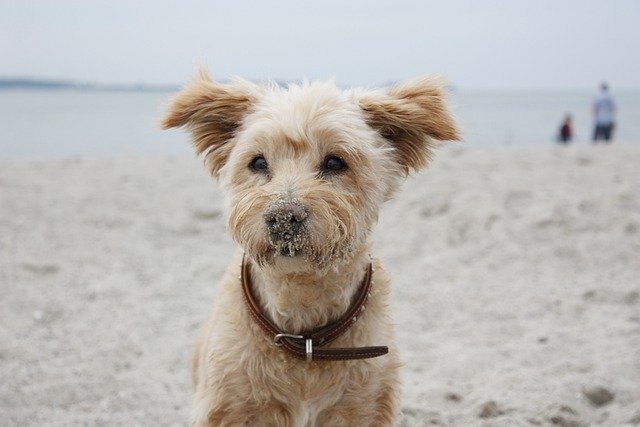
Dried-up seaweed is toxic to dogs and a potentially life threatening condition. If you think your dog has ingested seaweed take him to the vet so that he gets the care he needs before it’s too late!
Here are the common signs of seaweed poisoning in dogs you need to watch out.
Your dog may have one or a combination of some of these:
- Vomiting
- Diarrhea
- Loss of appetite
- Lethargy
- Depression
- Weakness
Shaky balance or trembling - Immobile
- Straining during bowel movements
- Drooling, burping
- Abdominal bloating and pain
Your vet will diagnose seaweed poisoning by performing an x-ray test and taking a blood test. Sometimes the removal of foreign ingested objects do not require surgery. An endoscopy, a non-invasive surgical option can also be performed.
Is it dangerous for dogs to drink salt water?
Drinking excessive amounts of salt water can be dangerous for your dog and in some cases it can be fatal.
When a dog drinks ocean water, the excess salt draws water from the blood into the intestines and leads to some serious health effects in your dog.
If you suspect that your dog has consumed a large amount of salt water, get them to a veterinarian as quickly as possible. Your vet will administer IV fluids to try and flush out the excess salt out of his body, give him electrolytes and supplemented oxygen.
Depending on how much salt a dog consumed, the process of managing dehydration can take up to three days. Also depending on the level of damage, your dog might need more medication to reduce any inflammation.
The vets are likely to monitor your dog for 24 hours as a precaution.
Always carry plenty of fresh water to give your dog on beach days, restrict their access and keep an eye on these signs of toxicity.
Here are the symptoms of saltwater poisoning in dogs:
- Diarrhea
- Weakness
- Muscle tremors
- Seizures
- Lack of energy
- Loss of appetite
- Extreme thirst
- Tongue swelling
- Stumbling
Nutritional benefits of seaweed for dogs
Can I give my dog seaweed? Yes - the safest form being via a supplement.
Seaweed is rich in vitamins A and B-12, as well as iodine (which is surprisingly difficult to come by in most foods). It is also rich in soluble fiber which helps reduce cholesterol levels.
Snacks produced commercially from seaweed or seaweed supplements are safe for dogs provided salts, spices or other harmful herbs are not contained in it.
Sprinkling seaweed additives to your dog's food is the easiest way to nutritionally benefit a dog. But be mindful of the amount of seaweed you give a dog, and especially steer clear of wild seaweed. When feeding your dog any seaweed supplement for the first time, watch out for any allergic reactions, like fur loss and dry skin.
Out of all edible sea vegetables, kelp is the most nutritious for dogs and is used in many seaweed supplements and pet food. Kelp is a natural source of amino acids (has over 21 amino acids) and 60 different vitamins and minerals. This sea veggie is 25% protein with only 2% fat.
The only harmful kind of kelp is that which grows along the coast, because they can easily absorb pollutants from the surrounding area.
Benefits associated with kelp include the following:
- Reduces dental plaque and tarter build-up in dogs
- Prevents a condition called hypothyroidism in dogs
- Reduces itchiness and skin conditions
- Supports many of your dog's other body functions from fortifying the blood to cleaning the digestive system
- Strengthens immune systems especially important for older dogs
- Speeds up tissue repair

A good example of a safe seaweed supplement for dogs is the Because Animals superfood supplement for dogs, which also happens to contain probiotic elements and other ingredients to strengthen your dog's immunity, digestion, skin, coat, and improves the health of your dog's teeth, remove plague, and help bad breath.
Is carrageenan from seaweed safe?
Carrageenan is a widely used food additive made from red seaweed and which is used in certain industries as a thickening agent. There's intense debate among scientists regarding the safety of consuming carrageenan.
Some scientists believe that carrageenan causes inflammation, bloating and irritation of the bowels, and color cancer. But there doesn't seem to be enough evidence to conclude carrageenan can be linked to these health conditions. The only evidence comes from studies in animals and cells.
While there isn't conclusive evidence on the dangers of food-grade carrageenan, consuming it shouldn't be assumed to be risk-free.
Despite all these claims, carrageenan is widely used in pet food.
How can dogs eat seaweed?
Here's how to prepare a special treat for your dog containing a seaweed supplement using this easy to make homemade recipe with kelp.
Dr. Ernie Ward's recipe for Eggs-cellently Delicious Eggs from PetPlan is rich in nutrients and super-healthy
It's packed with digestible proteins, vitamins, and other nutrients that improve sight, brain, and heart. The unique combination of egg, yeast and kelp provides all the nutrients your dog needs to be at its best.
Ingredients
- A half cup each of chopped celery, carrots, and spinach (yes, dogs can eat spinach )
- 2 cups of chopped boiled egg
- 2 cups 2% cottage cheese
- 1 tablespoon kelp powder
- ¼ cup nutritional yeast
Preparation
Blend the vegetables in a blender until minced or puréed. Mix all ingredients evenly in a bowl. Then divide into separate portions for each meal according to the amount of calories your dog takes.
A cup is about 160 calories.
Also, check out our other related dog food articles dedicated to the safety of foods for pets.

